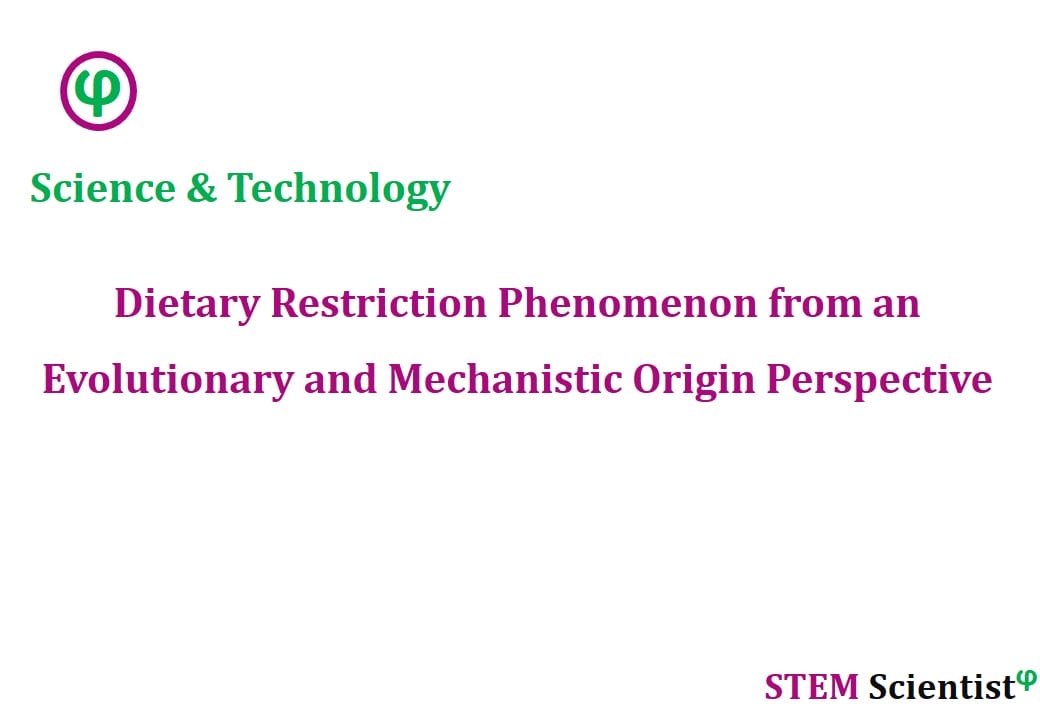
The following study was conducted by Scientists from Department of Animal and Plant Sciences and Bateson Centre, The University of Sheffield, Sheffield, UK; Department of Ecology and Evolutionary Biology, Brown University, Providence, USA. Study is published in Science Advances Journal as detailed below.
Science Advances; 21 Feb 2020: Vol. 6, no. 8, eaay3047; DOI: 10.1126/sciadv.aay3047
The Hidden Costs of Dietary Restriction: Implications for Its Evolutionary and Mechanistic Origins
Abstract
Dietary restriction (DR) extends life span across taxa. Despite considerable research, universal mechanisms of DR have not been identified, limiting its translational potential. Guided by the conviction that DR evolved as an adaptive, pro-longevity physiological response to food scarcity, biomedical science has interpreted DR as an activator of pro-longevity molecular pathways. Current evolutionary theory predicts that organisms invest in their soma during DR, and thus when resource availability improves, should outcompete rich-fed controls in survival and/or reproduction. Testing this prediction in Drosophila melanogaster (N > 66,000 across 11 genotypes), our experiments revealed substantial, unexpected mortality costs when flies returned to a rich diet following DR. The physiological effects of DR should therefore not be interpreted as intrinsically pro-longevity, acting via somatic maintenance. We suggest DR could alternatively be considered an escape from costs incurred under nutrient-rich conditions, in addition to costs associated with DR.
Source:
Science Advances
URL: https://advances.sciencemag.org/content/6/8/eaay3047
Citation:
McCracken, A. W., G. Adams, et al. (2020). “The hidden costs of dietary restriction: Implications for its evolutionary and mechanistic origins.” Science Advances 6(8): eaay3047.


